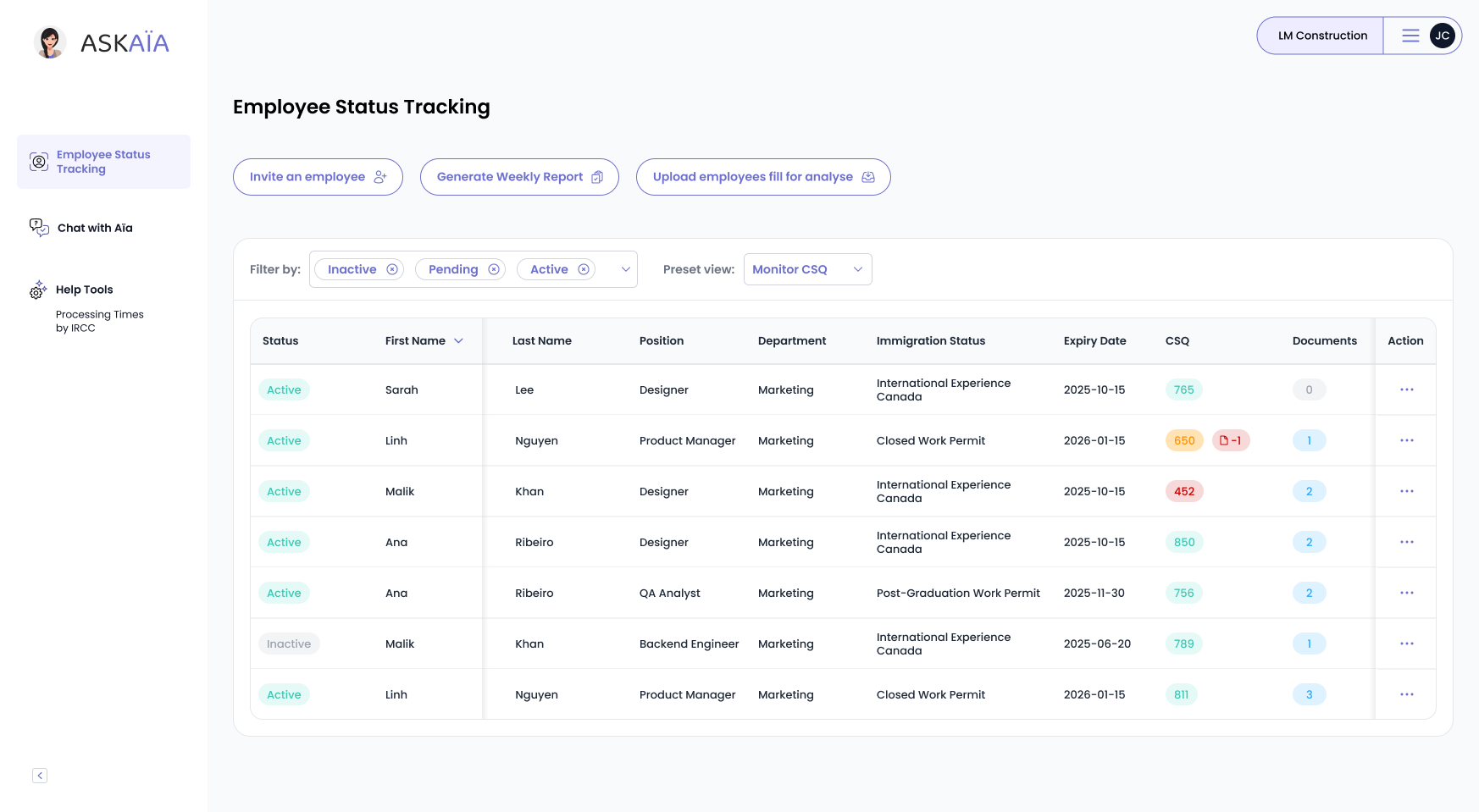At a Glance
- What’s New: As of July 2025, IRCC is phasing in the release of officer decision notes with refusal letters—no ATIP request needed.
- Who’s Affected: Applies to study permits, work permits, visitor records, and temporary resident visas (except eTAs and TRPs).
- How It Works: Notes are sent automatically with refusal letters for eligible applications filed through the standard IRCC Portal.
- Why It Matters: Applicants can now understand refusals faster, reduce delays, and improve reapplications with clear, case-specific feedback.
- Limitations: Some parts may be redacted for legal/privacy reasons. Notes are not yet available for permanent residence applications.
Too many immigrants have faced refusal without knowing why. Until now, IRCC's refusal letters offered limited insight, often forcing applicants to file time-consuming access-to-information (ATIP) requests. That’s changing.
In July 2025, IRCC began including officer decision notes with refusal letters for select temporary applications. This move marks a significant shift toward transparency—helping immigrants better understand refusals and prepare for reapplication.
Context – Why Transparency Matters More Than Ever
Refusals for Canadian immigration applications (especially study permits and visitor visas) have long been accompanied by generic reasoning. These one-line explanations left applicants uncertain about where they fell short or how to improve their files.
To uncover the real basis of a refusal, most had to file an ATIP request to obtain GCMS officer notes, a process that could take up to 4 months. For urgent cases, this delay was often a barrier to timely reapplication or legal response. As immigration demand grows and automation plays a greater role in file triage, calls for transparency and fairness have intensified.
Responding to this need, IRCC has now confirmed it will proactively release officer decision notes for certain applications, eliminating the need for many to rely solely on ATIP.
New IRCC Measures – Who Will Receive Officer Notes in 2025
According to the official government announcement dated July 2, 2025, IRCC will begin phasing in officer decision notes for specific application types. These notes will be included automatically with refusal letters for the following:
- Temporary resident visas (TRVs), excluding electronic travel authorizations (eTAs) and temporary resident permits (TRPs)
- Visitor records
- Study permits
- Work permits, including both employer-specific and open work permits
- Extension applications under the categories above
The notes will be sent directly to the applicant or their authorized representative. However, this applies only to applications submitted through the standard IRCC Portal—not the new version of the IRCC Portal, which is being rolled out in stages.
Importantly, some parts of the officer notes may be withheld on a case-by-case basis for privacy, security, or legal reasons.
IRCC has stated that it intends to include more application types over time, meaning this policy could expand to permanent residence and family sponsorship cases in the future.
Implications for Immigrants – Clarity, Strategy, and Empowerment
For the first time, many refused applicants will receive immediate insight into the real reasoning behind their denial, without needing to wait months or hire a lawyer to submit an ATIP request.
This empowers immigrants to:
- Understand the decision right away
- Avoid repeating mistakes in future applications
- Respond more quickly to time-sensitive opportunities like job offers or school admissions
- Make informed choices, including whether to reapply, appeal, or seek expert help
For students, workers, and visitors (groups most affected by procedural refusals) this change introduces a layer of fairness and practicality that was long overdue.
Using Officer Notes – What to Look For and When to Dig Deeper
While these notes will offer a clearer explanation of an officer’s reasoning, applicants should read them carefully. Officer notes typically include:
- A summary of the application
- The officer’s assessment of key criteria (e.g., purpose of travel, financial capacity, ties to home country)
- Flags or concerns that influenced the decision
If parts are unclear, or if your case is complex, you may still choose to file a full ATIP request. This remains the only way to access a complete copy of your application file, background checks, and decision history. For permanent residence files, ATIP requests are still required.
Applicants should also consider seeking support from a licensed immigration consultant or lawyer, especially if they are unsure how to interpret the language used in the notes or want to build a stronger case for reapplication.
AskAïa’s Role – Decoding Refusals and Strengthening Applications
At AskAïa, we’re already helping immigrants apply smarter, not just faster. Our team uses these new officer notes to:
- Help you understand exactly why you were refused
- Create a corrected, high-quality reapplication package
- Support you with legal strategy, GCMS note requests, or formal appeals if needed
You don’t have to guess anymore. Our certified consultants will guide you step by step. Whether you’re planning to reapply or just want to know where you stand, we’re here to help.
Not sure how these changes affect you? Take a free assessment with AskAïa to explore your best immigration options and ensure you stay on track.

Let’s get your demo started
Book a demo
You May Also Like
These Related Stories

Canada Starts Refunding Immigration Fees for Missed Processing Times
Long processing times have long frustrated immigrants in Canada. A little-known policy now offers partial refunds when IRCC exceeds its own service st …

Non-Compliance Consequences for Canadian Employers
Every year, dozens of Canadian employers face this reality due to non-compliance with the Temporary Foreign Worker Program. In the past year alone, en …

Act Fast! B.C. Limits 2025 Immigration Nominations to 1,100
British Columbia has made a drastic cut to new immigration applications for 2025. Only 1,100 skilled immigrants will be accepted—mainly in healthcare …
